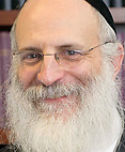Inhibition of Jun NH2-terminal kinases suppresses the growth of experimental head and neck squamous cell carcinoma Journal Article
| Authors: | Gross, N. D.; Boyle, J. O.; Du, B.; Kekatpure, V. D.; Lantowski, A.; Thaler, H. T.; Weksler, B. B.; Subbaramaiah, K.; Dannenberg, A. J. |
| Article Title: | Inhibition of Jun NH2-terminal kinases suppresses the growth of experimental head and neck squamous cell carcinoma |
| Abstract: | Purpose: This study was carried out to investigate whether c-Jun NH 2-terminal kinases (JNK) are potential targets for treating head and neck squamous cell carcinoma (HNSCC). Experimental Design: JNK activity was first evaluated in 20 paired samples of human HNSCC. The antitumor activity of SP600125, a reversible nonselective ATP-competitive inhibitor of JNKs, was then investigated both in an HNSCC xenograft model and in vitro using immunohistochemistry, immunoblotting, enzyme immunoassay, flow cytometry, and a Matrigel assay of capillary tube formation. Complementary studies were carried out using small interfering RNA to JNK1/2. Results: JNK activity was increased in human HNSCC compared with normal-appearing epithelium. Treatment of mice bearing HNSCC xenografts with SP600125 resulted in >60% inhibition of tumor growth relative to vehicle-treated animals. Inhibition of tumor growth was associated with significant reductions in both cell proliferation and microvessel density. SP600125 inhibited tumor cell proliferation by causing delays in both the S and G2-M phases of the cell cycle. Inhibition of angiogenesis seemed to reflect effects on both tumor and endothelial cells. The JNK inhibitor suppressed the production of vascular endothelial growth factor and interleukin-8 by tumor cells and also inhibited endothelial cell proliferation and capillary tube formation. Reduced amounts and phosphorylation of epidermal growth factor receptor were found in tumor cells after treatment with SP600125. Small interfering RNA - mediated suppression of JNK1/2 led to reduced tumor cell proliferation and decreased levels of epidermal growth factor receptor, vascular endothelial growth factor, and interleukin-8. Conclusions: JNK activity is commonly increased in HNSCC. Our preclinical results provide a rationale for evaluating JNK inhibition as an approach to treating HNSCC. ©2007 American Association for Cancer Research. |
| Keywords: | immunohistochemistry; vasculotropin; controlled study; human tissue; protein phosphorylation; unclassified drug; squamous cell carcinoma; carcinoma, squamous cell; nonhuman; flow cytometry; cell proliferation; mouse; animal; metabolism; animals; mice; cell cycle s phase; enzyme inhibition; mitogen activated protein kinase kinase 7; stress activated protein kinase; epidermal growth factor receptor; interleukin 8; animal experiment; animal model; small interfering rna; rna interference; antineoplastic activity; enzymology; enzyme inhibitor; enzyme activity; cell line, tumor; angiogenesis; neovascularization, pathologic; endothelium cell; enzyme immunoassay; gene expression regulation; cancer inhibition; chemistry; interleukin-8; xenograft; drug combination; head and neck neoplasms; enzyme inhibitors; tumor cell line; collagen; immunoblotting; cell cycle g2 phase; cell cycle m phase; matrigel; neoplasm transplantation; drug combinations; neovascularization (pathology); head and neck tumor; head and neck carcinoma; laminin; cancer transplantation; gene expression regulation, enzymologic; jnk mitogen-activated protein kinases; anthra[1,9 cd]pyrazol 6(2h) one; proteoglycans; mitogen activated protein kinase kinase 4; anthra(1,9 cd)pyrazol 6(2h) one; anthra(1,9-cd)pyrazol-6(2h)-one; anthracene derivative; proteoglycan; anthracenes |
| Journal Title: | Clinical Cancer Research |
| Volume: | 13 |
| Issue: | 19 |
| ISSN: | 1078-0432 |
| Publisher: | American Association for Cancer Research |
| Date Published: | 2007-10-01 |
| Start Page: | 5910 |
| End Page: | 5917 |
| Language: | English |
| DOI: | 10.1158/1078-0432.ccr-07-0352 |
| PUBMED: | 17908987 |
| PROVIDER: | scopus |
| DOI/URL: | |
| Notes: | --- - "Cited By (since 1996): 10" - "Export Date: 17 November 2011" - "CODEN: CCREF" - "Source: Scopus" |
Altmetric
Citation Impact
BMJ Impact Analytics
Related MSK Work





